
Exciting new series on “Voice, Body and Movement for Lawyers – How to connect with the jury and find Justice Through Dramatic Technique!”
Click here to find out more
This program briefly covers scientific perspectives on how memory works, and more importantly, how it doesn’t. Following this introduction, the presenter will provide detailed explanations of the factors most commonly known to impact eyewitnesses, including discussion of several real-world cases that demonstrate the importance and application of these factors.
The course will review and analyze several photospreads, use of police procedures, and other case issues outside the area of controlled research, including the prevalence of social media and its impact on witness reliability.
Attendees will:
• Develop an understanding of the basic limitations of human memory
• Recognize the most common factors impacting eyewitness identifications
• Develop an understanding of proper police procedures and best practices for photospread administration
• Learn how to best apply these factors to their criminal cases
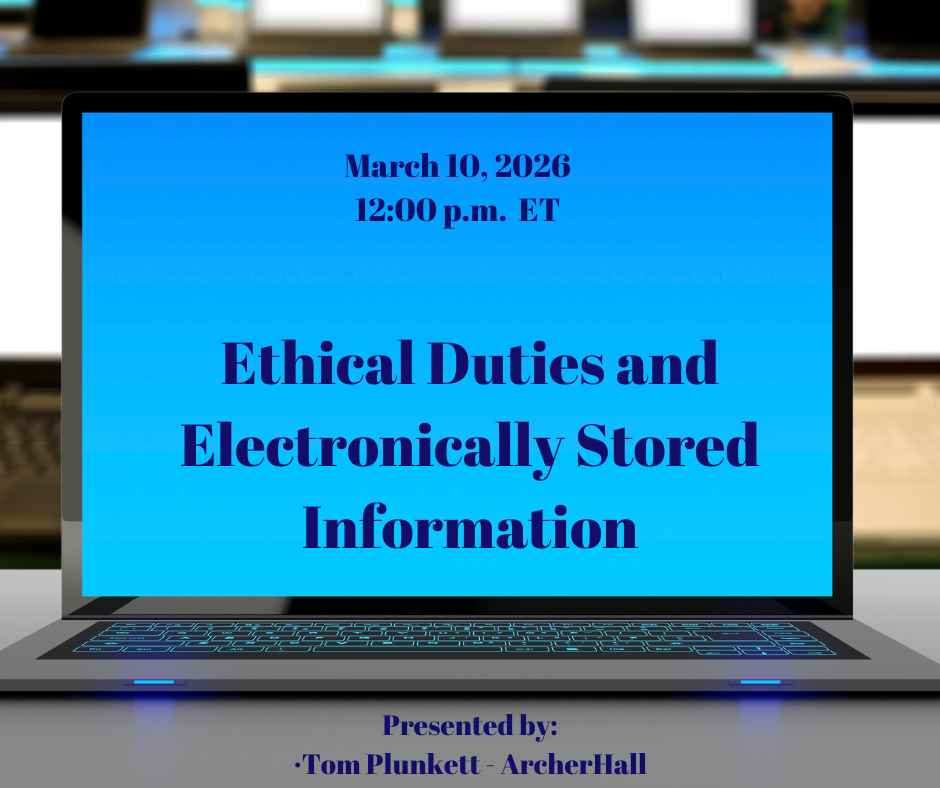
This CLE program examines attorneys’ ethical duties in managing electronically stored informat...
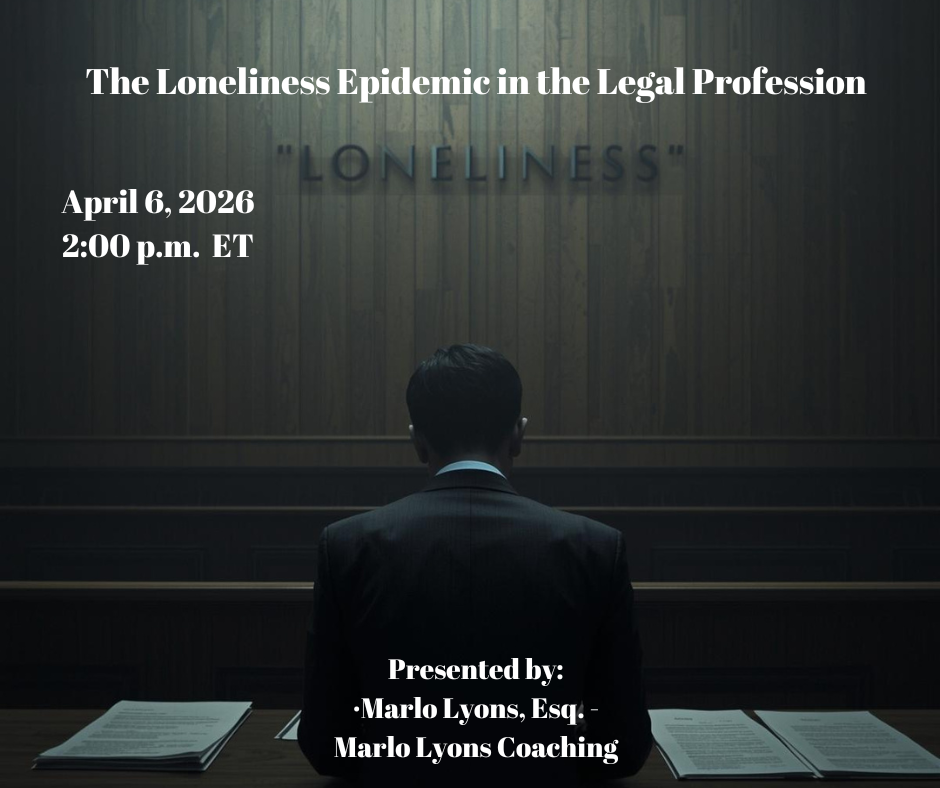
Loneliness isn’t just a personal issue; it’s a silent epidemic in the legal profession t...
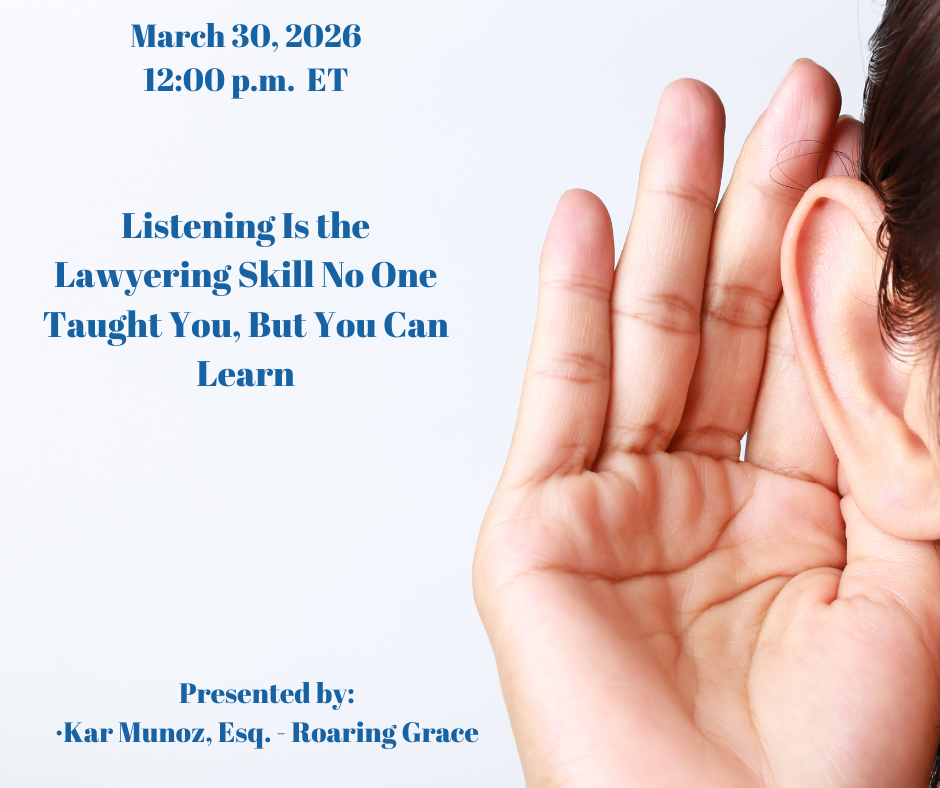
This program explores listening as a foundational yet under-taught lawyering skill that directly imp...
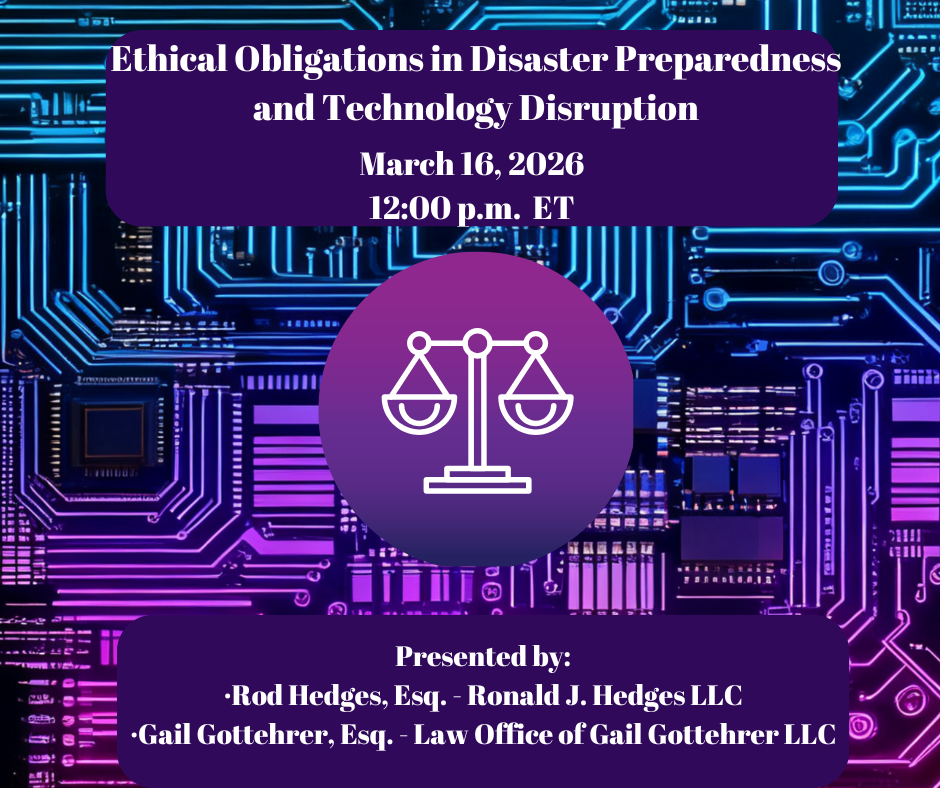
Disasters, whether natural or manmade, happen. Disasters can impact the practice of law and, among o...
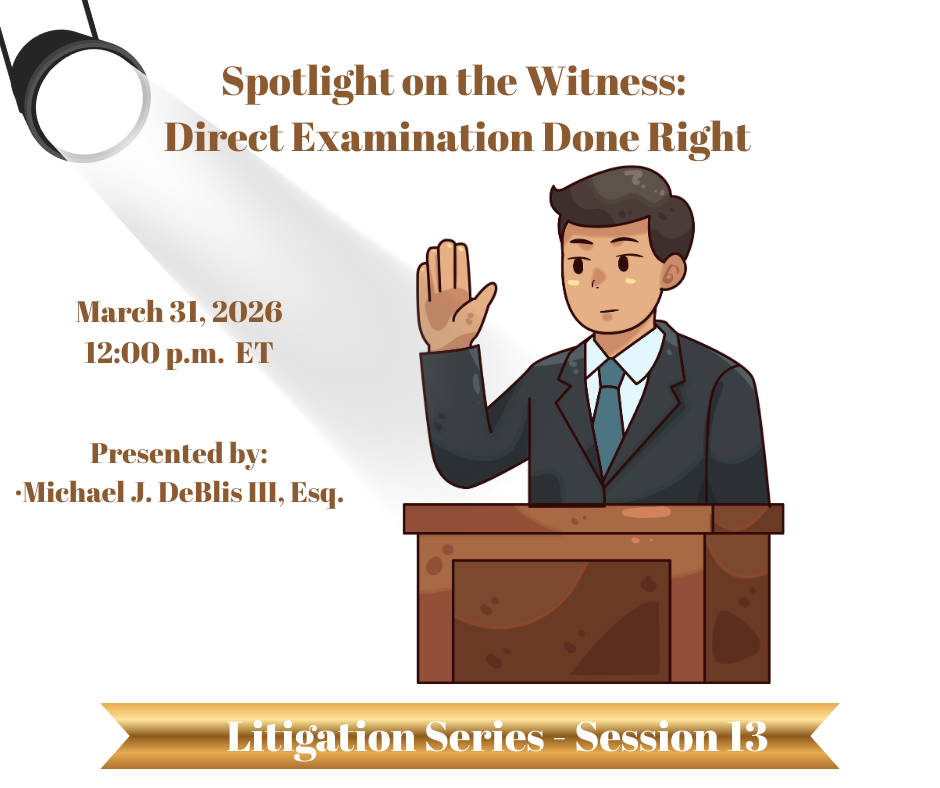
The direct examination presentation outlines how attorneys can elicit truthful, credible testimony w...
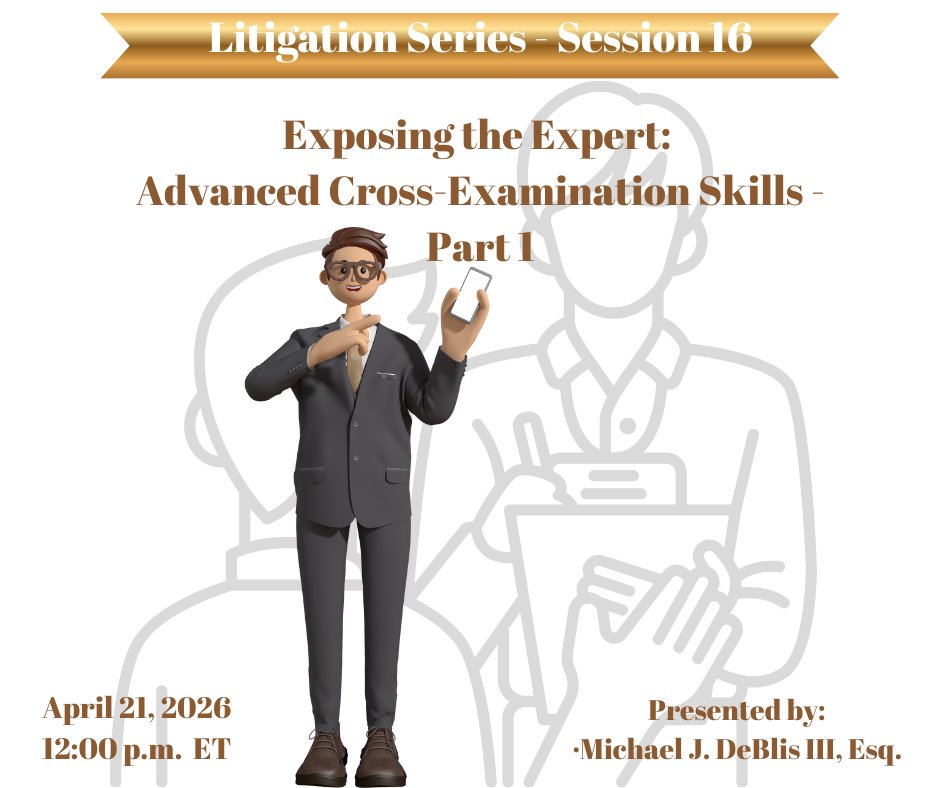
Part 1 - This program focuses specifically on cross?examining expert witnesses, whose credentials an...
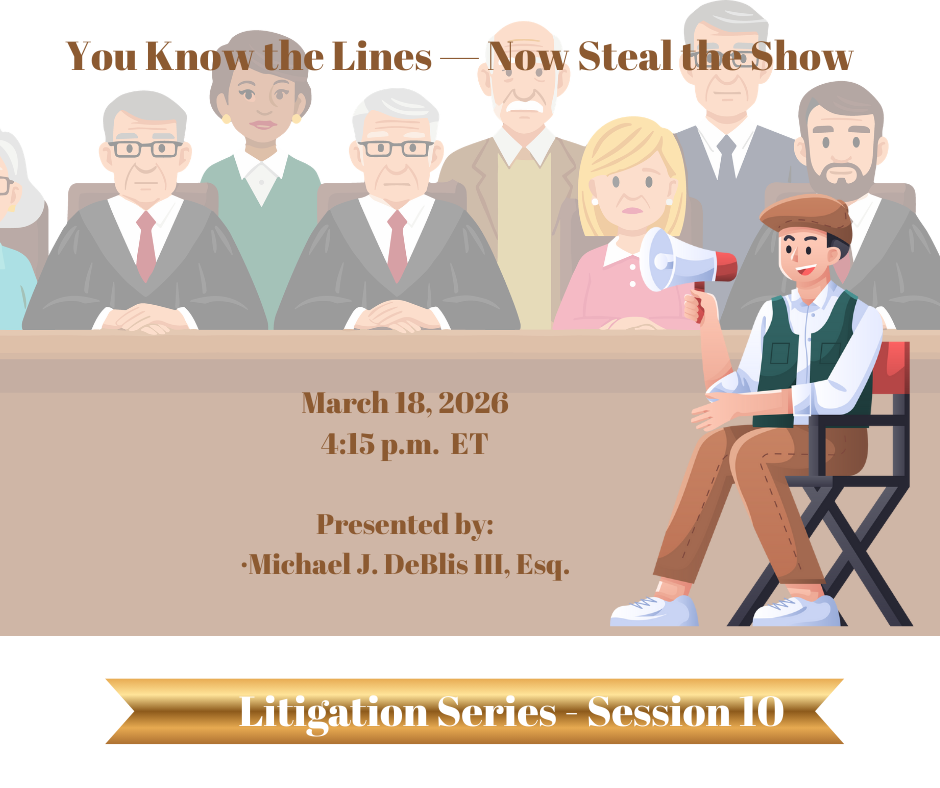
This presentation teaches attorneys how to deliver memorized text—especially openings and clos...
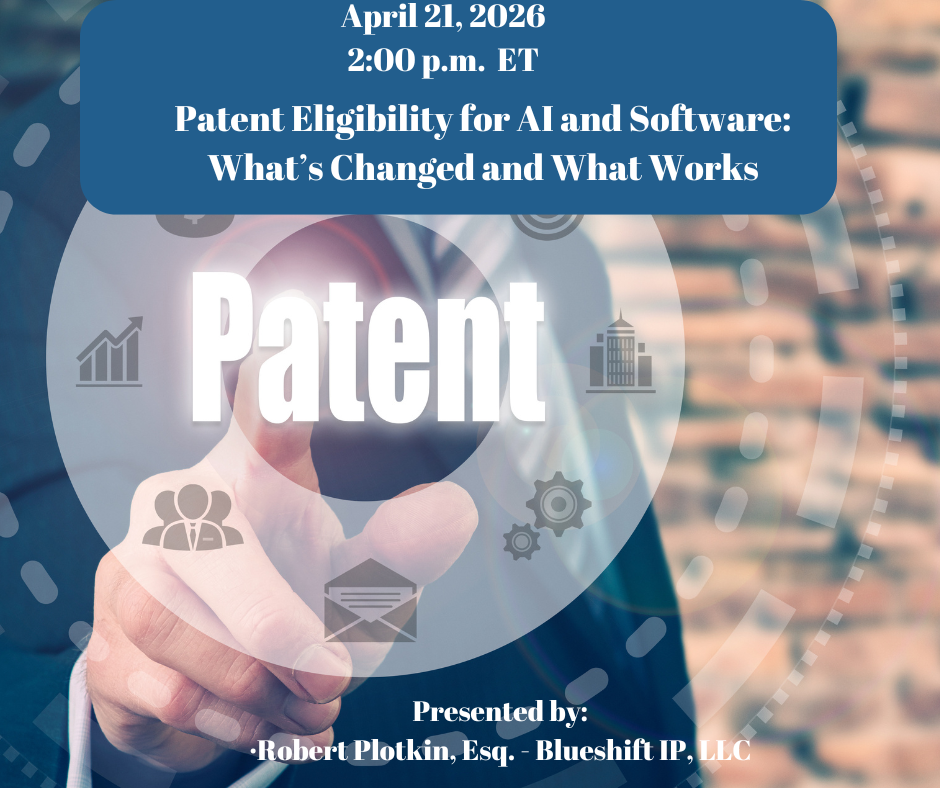
This program examines critical 2025-2026 developments in patent eligibility for software and AI inve...

United States patent law and the United States Patent and Trademark Office’s patent-related gu...
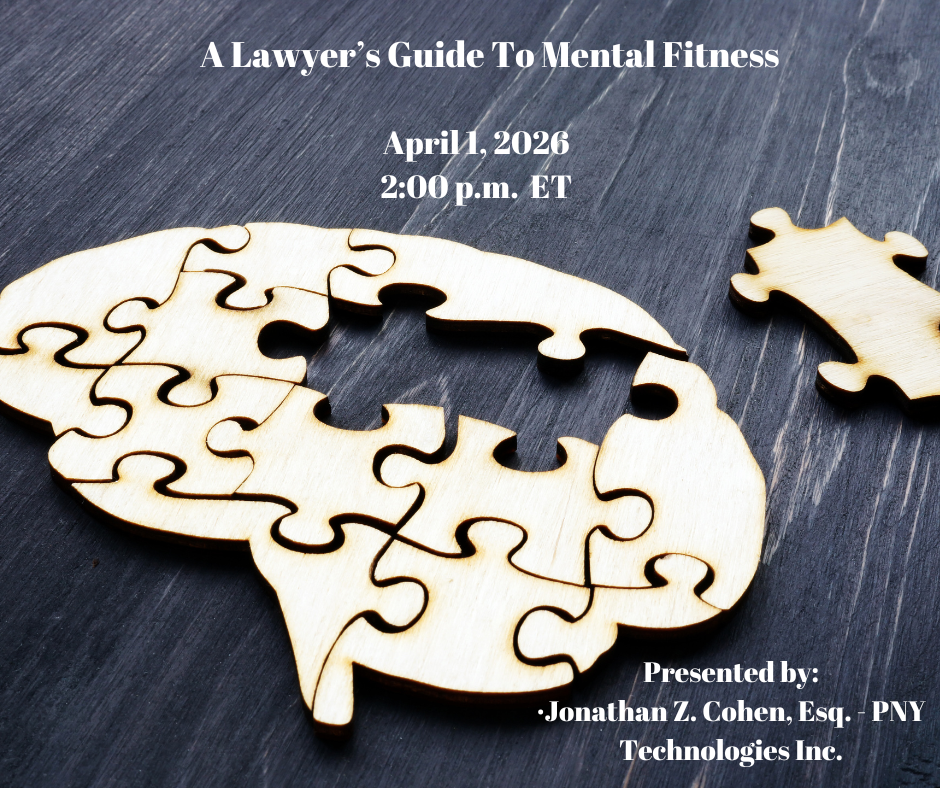
‘A Lawyer’s Guide To Mental Fitness’ is a seminar designed to equip professionals ...